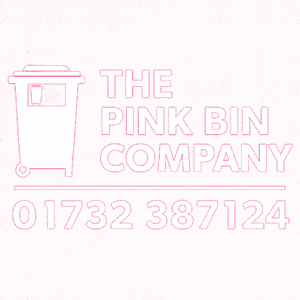Navigating Commercial Waste Regulations: A Business Owner’s Guide
Running a business in the UK means navigating a landscape of regulations, and commercial waste management is no exception. Beyond the operational demands, a robust understanding of waste laws is crucial to avoid penalties, protect your reputation, and contribute positively to our environment.
Our extensive experience, forged in the exacting standards of the hospitality sector, positions us uniquely to guide any business through these complexities. We understand that whether you’re a bustling restaurant or a busy office, compliance needs to be seamless, efficient, and, above all, worry-free.
This guide will demystify the key regulations impacting UK businesses, ensuring your waste management practices are not just compliant, but also optimized for efficiency and sustainability.
Understanding the Regulatory Landscape
The primary legislation governing commercial waste in the UK is the Environmental Protection Act 1990, which establishes the “Duty of Care” for all waste producers. This forms the bedrock of your responsibilities, ensuring waste is handled safely and legally from its creation to its final disposal.
Beyond this, various regulations, notably the Waste (England and Wales) Regulations 2011 (as amended) and the Environment Act 2021, introduce specific requirements, including the crucial upcoming changes to waste segregation. Scotland and Wales have their own distinct but often similar regulations.
Key Regulations Every Business Owner Must Know:
- The Duty of Care (Environmental Protection Act 1990, Section 34):
- What it means: You are responsible for your waste from the moment it’s produced until it’s safely and legally disposed of or recovered. This means taking “all reasonable steps” to prevent harm to human health or the environment.
- Your obligations:
- Prevent unauthorised disposal: Ensure your waste is not illegally dumped or treated by anyone.
- Prevent waste escape: Store waste securely in appropriate containers to stop it from blowing away, leaking, or causing a nuisance (e.g., attracting pests).
- Transfer to authorised persons only: Hand your waste over only to a licensed waste carrier or to a site with the correct environmental permit. It’s your responsibility to check their legitimacy (e.g., via the Environment Agency’s public register).
- Provide Waste Transfer Notes (WTNs): For non-hazardous waste, a WTN must accompany every transfer. This legal document details the waste, its quantity, and the parties involved. You must keep WTNs for at least two years.
- The Pink Bin Company Edge: Our meticulous approach, perfected in hospitality where discretion and reliability are paramount, ensures every collection is fully compliant. We handle all necessary WTN documentation, providing you with a clear audit trail and peace of mind.
- The Waste Hierarchy:
- What it means: You are legally required to apply the waste hierarchy, a prioritized order for waste management to minimize environmental impact:
- Prevention: Reduce waste generation at source.
- Preparing for Reuse: Repairing, cleaning items for continued use.
- Recycling: Processing waste into new materials.
- Other Recovery: Such as energy recovery from waste.
- Disposal: Landfill (as a last resort).
- Your obligations: Actively seek opportunities to move your waste management practices up the hierarchy.
- The Pink Bin Company Edge: Our expertise in managing diverse waste streams, particularly high volumes of food waste and packaging from hospitality, means we’re adept at helping businesses identify recycling opportunities and implement efficient segregation.
- What it means: You are legally required to apply the waste hierarchy, a prioritized order for waste management to minimize environmental impact:
- Separate Waste Collections (Simpler Recycling – England, Scottish/Welsh equivalents apply):
- What it means: New regulations are rolling out requiring most businesses to separate key recyclable materials at source.
- Key Dates (England):
- From 31 March 2025: Businesses with 10 or more full-time equivalent employees must separate dry recycling (paper, card, plastic, metal, glass) and food waste from general waste.
- From 31 March 2027: Businesses with fewer than 10 full-time equivalent employees must meet the same requirements.
- What to separate: Typically, dry recyclables (paper, card, plastic, metal, glass) and food waste must be collected separately from general waste. Note: Paper and card must also be collected separately from other dry recyclables.
- Your obligations: Provide appropriate bins, ensure clear signage, and train staff on correct segregation.
- The Pink Bin Company Edge: We provide the right bin solutions and guidance to make segregation straightforward, ensuring you meet these evolving legal requirements without hassle. Our experience in handling complex waste streams, common in hospitality, makes us perfectly equipped for this.
- Hazardous Waste Regulations (if applicable):
- What it means: If your business produces hazardous waste (e.g., chemicals, asbestos, certain electronics, batteries), there are stricter rules for its classification, storage, collection, and disposal, including the use of Consignment Notes instead of WTNs.
- Your obligations: Requires specialist knowledge and handling.
- The Pink Bin Company Edge: While this guide focuses on general commercial waste, we can advise on initial steps and connect you with specialist partners if your business deals with hazardous materials.
Consequences of Non-Compliance:
Ignorance is not a defence. Failure to comply with commercial waste regulations can lead to:
- Fixed Penalty Notices (FPNs): On-the-spot fines, which can be substantial.
- Prosecution: More serious breaches can lead to court action, potentially resulting in unlimited fines.
- Reputational Damage: Negative publicity from non-compliance can severely impact customer trust and business relationships.
- Environmental Harm: The ultimate consequence, impacting our planet and communities.
Partnering for Compliance & Efficiency
Navigating commercial waste regulations can seem daunting, but it doesn’t have to be. The Pink Bin Company combines deep industry knowledge with practical solutions. Our rigorous standards, developed through years of managing complex waste needs in hospitality, translate directly into unwavering compliance, discreet service, and optimal efficiency for businesses of all types.
Let us help you understand your responsibilities, implement seamless waste management practices, and ensure your business stays ahead of regulatory changes. Contact us today for a tailored solution that perfects your bins and puts your mind at ease.
